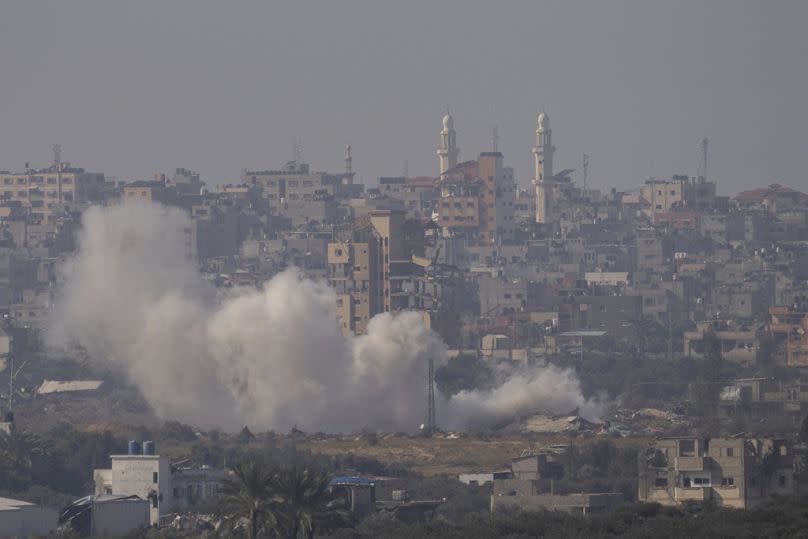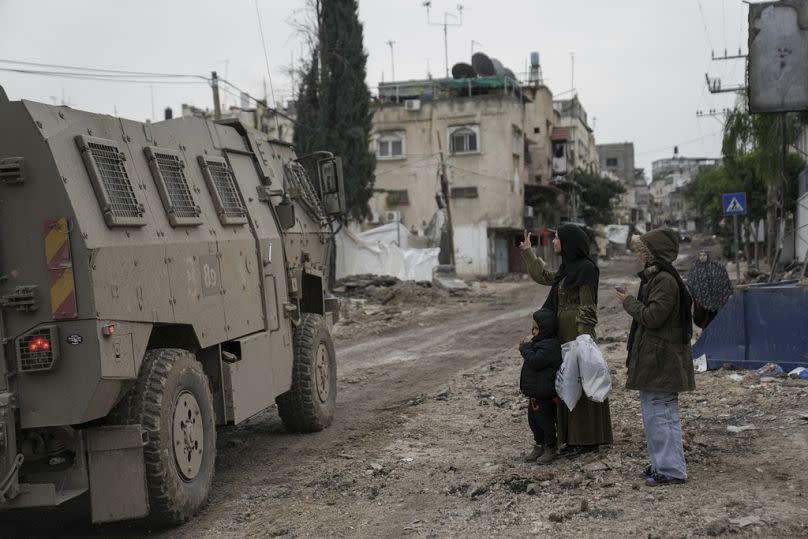Rifts emerge over Israeli handling of war, as UN warns of catastrophic situation in Gaza
A member of Israel's War Cabinet has cast doubt over the strategy for releasing hostages, despite Israeli Prime Minister Benjamin Netanyahu's rejection of the United States calls to scale back its offensive.
The US also wants steps to be taken toward establishing a Palestinian state after the war, a suggestion Netanyahu has soundly rejected.
According to former army chief Gadi Eisenkot, only a cease-fire deal can win the release of dozens of hostages still held by Islamic militants in Gaza. Eisenkot, who is one of five members of the War Cabinet, said that claims they could be freed by other means were spreading “illusions".
The comments are the latest sign of disagreement among political and military leaders over the direction of Israel’s offensive on Hamas.
UN sounds alarm over catastrophic situation in Gaza
Trucks carrying aid were seen entering the Gaza Strip from Egypt through the Rafah border crossing on Friday.
Israel has cut off all but a trickle of supplies into the besieged Gaza Strip, including food, water and fuel.
Several dozen trucks with critical supplies now enter the territory each day, just a fraction of the pre-war volume of about 500 trucks.
Both the United States and the United Nations have said more aid needs to be delivered.
The coordination of aid deliveries is also being hampered by a communications blackout in the territory, which entered its seventh day on Friday, the longest such blackout since the war began.

Gaza’s Health Ministry says more than 24,400 Palestinians have died since the 7 October attack by Hamas that sparked the war and saw some 250 people taken hostage by militants. In Israel, around 1,200 people have been killed since the start of the war. The Gaza Health Ministry also reported on Friday that 142 people were killed and 278 people wounded the previous day.
Meanwhile, the United Nations says a quarter of the 2.3 million people trapped in Gaza are starving. Ajith Sunghay, the head of the UN Human Rights Office’s Occupied Palestinian Territory team, said on Friday from Rafah that there is utter chaos and desperation in Gaza.
"It is a pressure cooker environment here in Rafah, in the midst of utter chaos, given the terrible humanitarian situation, shortages, and pervasive fear and anger.”
Following his fourth visit to Gaza since the outbreak of war, the head of the UN agency for Palestinian refugees, Philippe Lazzarini, said he was worried about the future with conditions steadily worsening:
“Today they seem to be in a kind of, automatic survival mode. They look exhausted. They cannot really sleep. It's cold, you are in the streets. You have drones. You have a bombardment. They're all anxious, not only about the day-to-day survival, but what appears also more and more it's about the future," said Lazzarini.
Mourners gather for dead Palestinians

Many people gathered on Friday in the West Bank city of Tulkarem to mourn six of eight Palestinians killed during an Israeli raid on the city and its refugee camp.
Israeli forces withdrew from Tulkarem refugee camp early Friday, leaving mass destruction in its wake.
According to the Palestinian Health Ministry, eight Palestinians were killed by Israeli fire in Tulkarem over the past two days.
Houses and streets were reduced to rubble and essential utilities such as water and electricity were severely disrupted.
The Israeli army has been raiding various locations across Tulkarem refugee camp for almost two days.
In a post on X, it said Israeli forces were conducting anti-terror operations in the camp and armed fighters remained at large.


